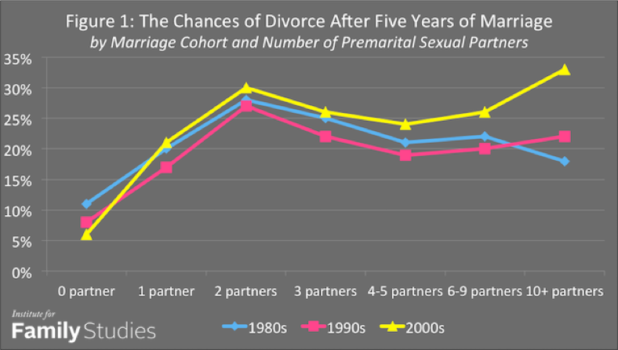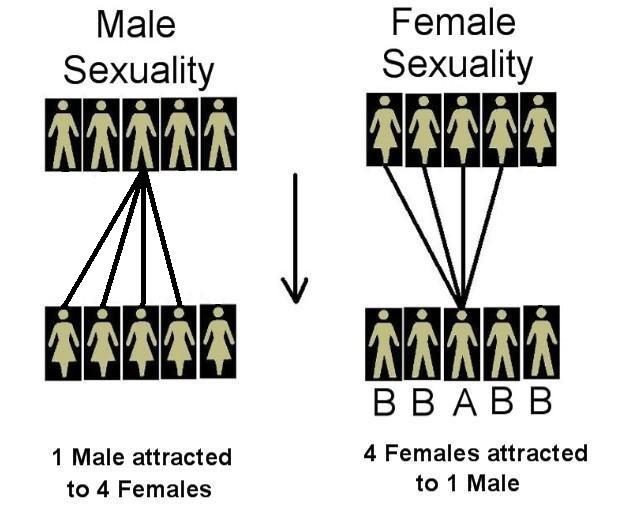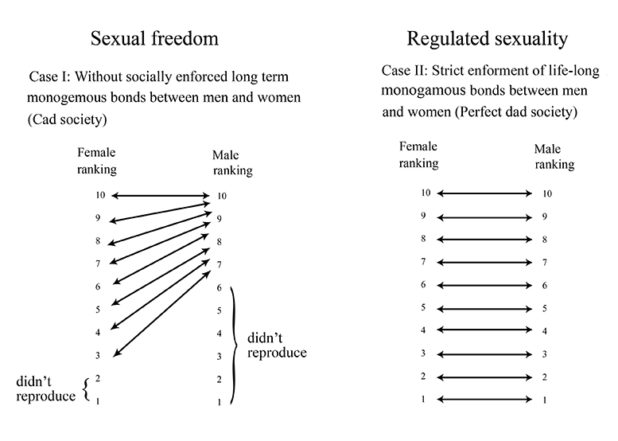Pomidor Quixote
Daily Stormer
September 8, 2019
Promiscuity’s list of downsides keeps increasing while its list of upsides remains empty.
Researchers from Florida State University investigated several factors likely to lead to a marriage’s ultimate success or failure, and identified pre-marital beliefs and behaviors pertaining to uncommitted sex as a major red flag indicating a marriage is not so likely to last.
“Marital satisfaction generally declines over time,” says Juliana French, the study’s first author, in a statement to the Association for Psychological Science. “But what we’ve found is that when, prior to their marriage, one or both spouses hold generalized beliefs that uncommitted sex is okay, that can contribute to the failure of a marriage.”
You may be familiar with studies looking at the relationship between the number of women’s premarital sexual partners and the likelihood of their marriages failing, but this study is also looking at the beliefs about casual sex held by both spouses before getting married.
Here’s a refresher about the number of premarital sexual partners and divorce rates in America:
Virgin brides are the least likely to divorce, followed by women with just one previous sexual partner — then it gets tricky. Women with two premarital sexual partners are more likely to divorce than women with 3-9 sexual partners, presumably because having a second sexual partner enabled a comparison of sexual partners, which results in the “is this the best I can get?” bug biting them in their clitorises and producing an inflammatory itch they can’t resist scratching.
Increasing the sample size up to a certain number makes the comparison fairer for men as the woman realizes that she can’t trap a Christian Grey-type of millionaire with her womanly charms, but going beyond this number increases the likelihood of divorce again because it destroys women’s capacities to bond.
Now, what happens when you add beliefs about casual sex to the mix?
After finishing their analysis, the study’s authors discovered that people who had expressed “unrestricted sociosexual” behaviors, tendencies, and beliefs, such as a propensity for one night stands, before getting married were less satisfied at the start of their marriages. Furthermore, people whose marital partners had been “unrestricted” prior to getting married experienced a rapid decline in marital satisfaction over the first few years of being married. In both cases, this dissatisfaction accurately predicted a greater chance of divorce or separation.
“What we found most surprising about these results was the fact that both couple members’ sociosexuality play an important role in long-term, marital outcomes,” French says.
All that being said, the study’s authors were quick to note that they aren’t passing judgment on whether or not “unrestricted sociosexual” behavior is necessarily a negative trait. In fact, among some studied couples such beliefs and prior actions had no impact on the marriage.
“We found evidence suggesting that couples who maintain a consistent, satisfying sexual relationship or couples who maintain low levels of stress are buffered against these negative outcomes,” French concludes.
There are two main things to point out here.
First, even if men’s beliefs towards sex and their number of premarital sexual partners made any difference, it wouldn’t really matter statistically because women are having way more sex than men. Most women will have sex with the top men, while the vast majority of men will fight for the scraps.
This is easy to see in high school, where most girls are having sex and most boys aren’t.
The second thing to talk about is the need for sex in heterosexual relationships. The study’s author points out that they’ve found evidence suggesting that consistent and satisfying sexual relationships offer a buffering effect against the negative outcomes in marriage, but that isn’t really useful information considering most dead bedrooms aren’t a result of men’s lack of interest in sex, and is actually misleading without looking at the age of the couples.
Before modernity brought the pill and all kinds of contraception methods to the masses, heterosexual relationships were about offspring. Now these relationships are thought to be about orgasms, but human biology has yet to catch up to this idea.
Long-term sterile sex during fertile years is a relationship destroyer because subconsciously, women’s brains ask themselves “why is he not getting me pregnant after I’ve taken so much of his semen?????? AM I STERILE?!?!” and historically, the only way to answer “AM I STERILE?!?!” was to try and have sex with another partner to see what happens.
Following that, the more time between the first sexual encounter and the first baby produced by the relationship, the more likely the relationship is to fail. Even after the first baby, the more time spent having sterile sex in fertile years, the more the relationship is likely to fail due to the same biological mechanism.
Women are meant to spent their years of fertility pregnant, not jumping back and forth from classroom and office chairs to random men’s penises.
The more babies a relationship produces, the stronger it becomes.
 Daily Stormer The Most Censored Publication in History
Daily Stormer The Most Censored Publication in History








